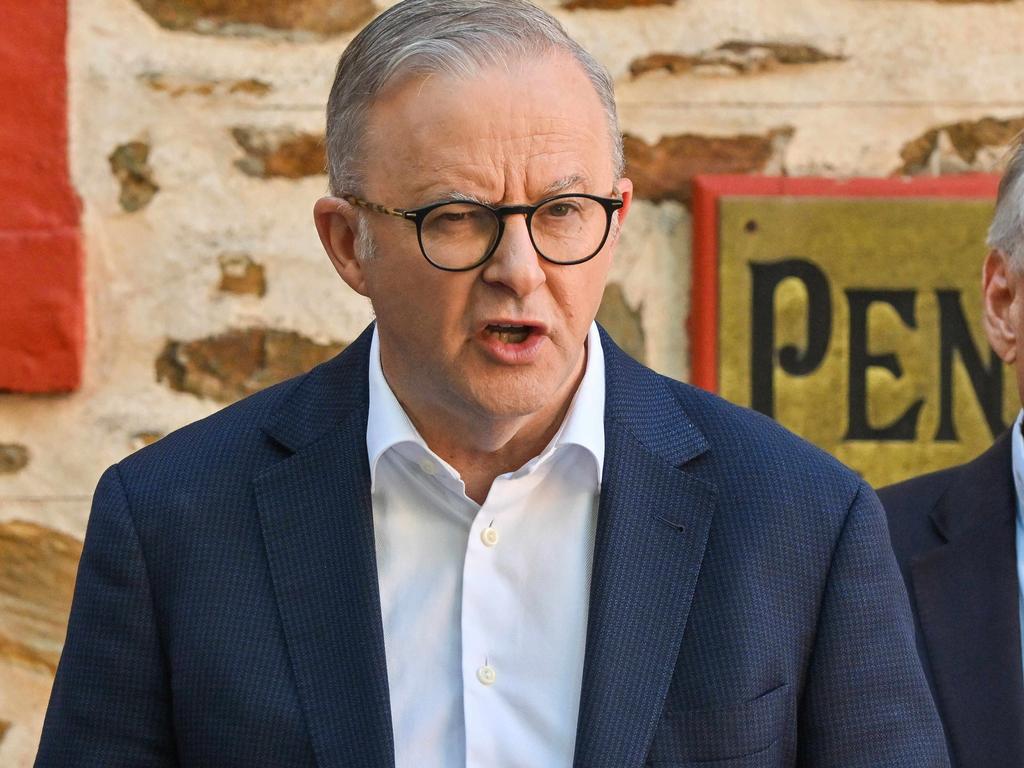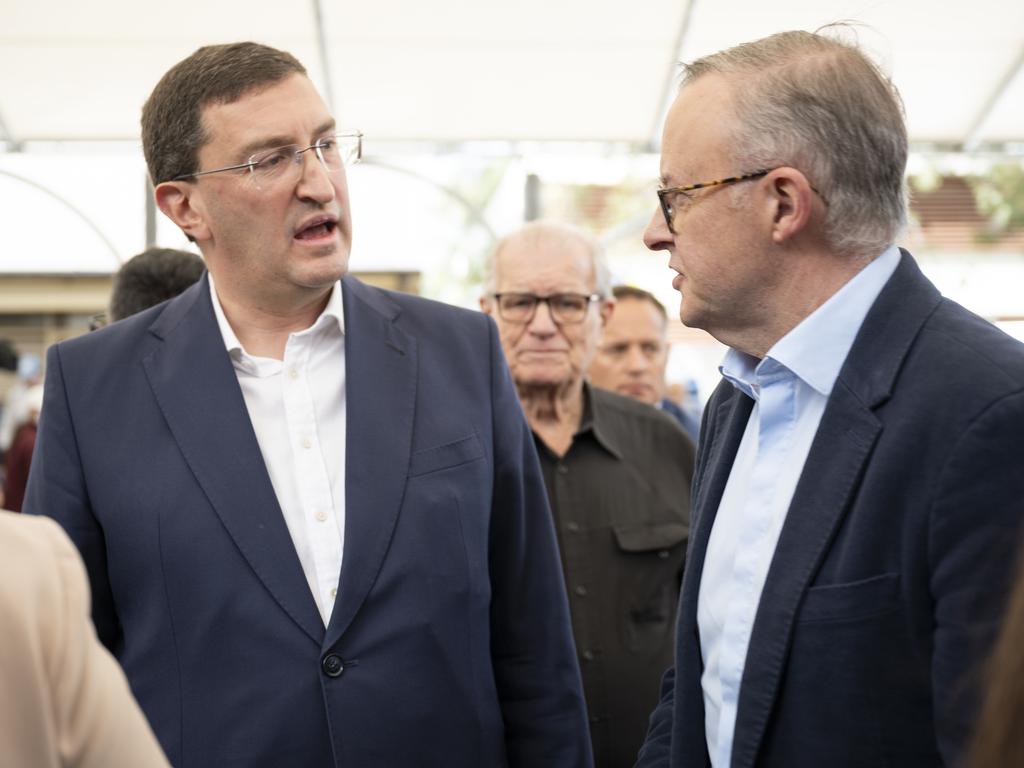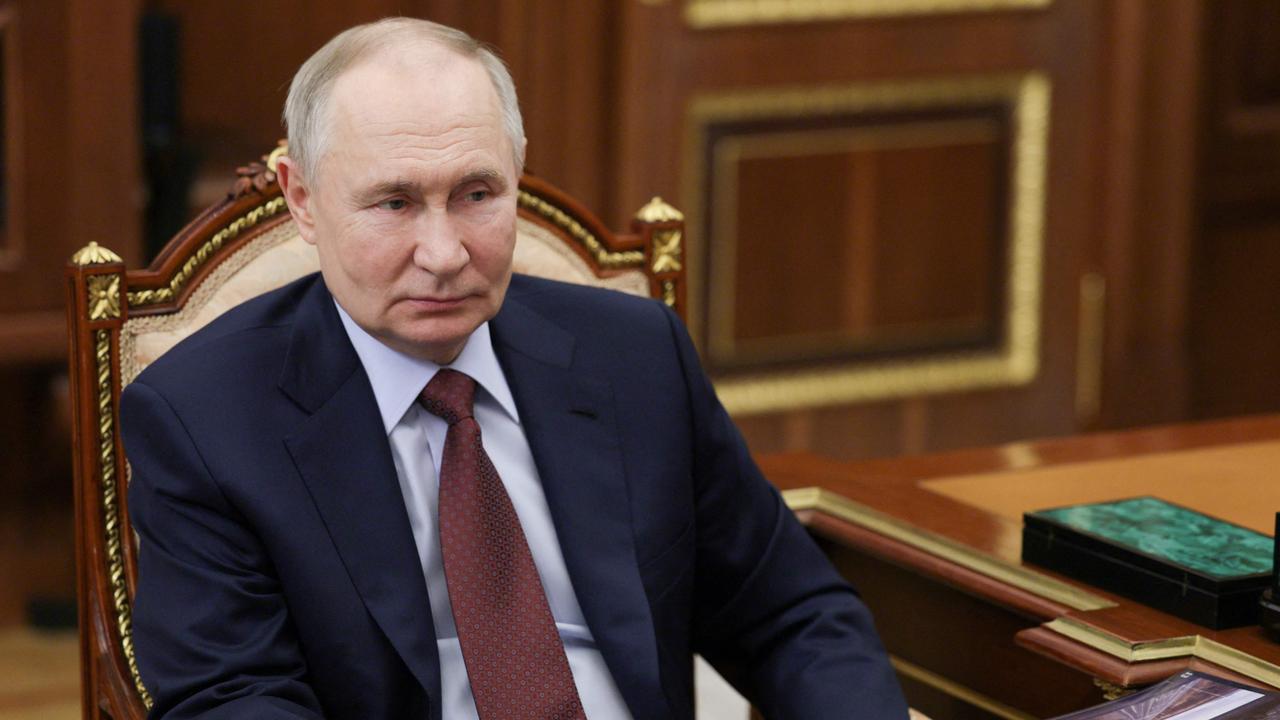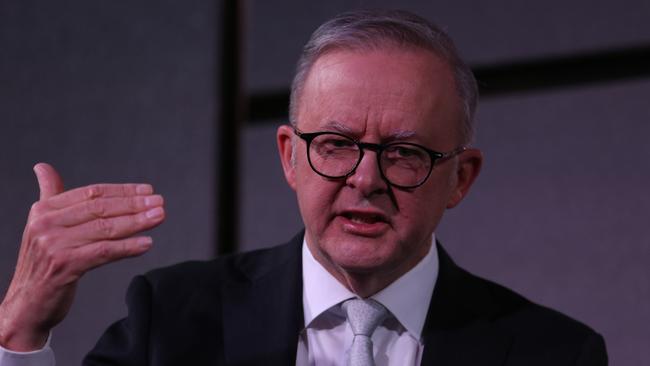
Anthony Albanese maintains his ambition on entering parliament was never to become prime minster. But now he is, he wants to stay around.
He has even made the curious observation that, at 61, he sees himself as one of the youngest leaders around the G20 table.
But if the last two weeks of parliament haven’t aged him, nothing will. He has suffered one of the most bruising fortnights since the election.
Despite his efforts to restore control over the political contest by steering the debate to an attack on the Greens over anti-Semitism, the community has been left with an image of a government stricken by policy chaos and driven by political distraction.
Not since the defeat of the voice referendum has the Prime Minister’s political judgment and the competency of his ministry faced scrutiny as intense.
The budget has vanished without a trace. In its place has been the exposure of catastrophic failure in the immigration portfolio, ill-discipline within cabinet and bickering among ministers over defence recruitment.

This has all occurred under the shadow of a darkening economic picture – a rise in inflation and a collapse in economic growth.
Labor has been wildly thrown off course as Albanese attempts to chart a course to the next election.
At a fundamental level, Albanese may now be paying the price for an approach he established at the start of his term, to restore what he claimed was proper cabinet process. While there was virtue in this ambition, in practice it has led to disastrous consequences in its application.
The perception of Albanese’s approach to executive government is as a prime minister presiding over a cabinet like a chairman of a board of directors rather than a CEO running a management team.
This was a claim Malcolm Turnbull made and was a style that suited Bob Hawke, until it didn’t.
In theory, Albanese isn’t wrong. As a political animal, he made a virtue of the structural difference between a Labor government under his stewardship and that of Scott Morrison’s overlord approach.
“I know that those opposite don’t recognise what a proper cabinet process might look like,” Albanese said.
“Because they became, the longer they were in office, more and more dysfunctional.
“They allowed themselves to have a cabinet committee with one member on it.”

In practice, however, Albanese is now experiencing dysfunction for the opposite reason.
As a principle, Albanese’s approach has historical merit, but in the modern age with the demands of the media cycle and the fullness of Labor’s agenda, the expectations are greater. The prime minister is expected to perform as a CEO.
They have to be across every detail of the business, hold their managers to account and make broad values-based decisions.
In the first six months of the Albanese government, minsters were given free rein and appeared to be running their own agendas without any central command.
Cabinet ministers were out floating ideas on the NDIS, education, aged care and energy, raising the expectations of the electorate that Labor would fix everything.
This had limited consequences when things were going well. The problem for Albanese is that when things go wrong, he is required to reach in and take command.
He has either failed to do this when necessary and, if and when he has, the outcomes haven’t always been improved.
The policy and political disaster that is Ministerial Direction 99 is the most glaring example of the problem that Albanese’s approach has created.
Two other examples this week included the occupation list for skilled migrants. The Prime Minister’s office must have been as surprised as everyone else by the stupidity of prioritising yoga instructors over tradies during a housing crisis.
This policy should have been arrested before it was released.


The public spat between Defence Minister Richard Marles and his assistant minster Matt Keogh over defence recruitment is another. This decision did not go before cabinet or the national security committee of cabinet. It doesn’t appear that the two ministers were talking to each other about it either.
This is significant failure of process.
The management of the voice referendum exposed Albanese’s dilemma in spectacular fashion.
But this is not confined to management of cabinet. Alongside this, Albanese recast what he saw as the role of the public service.
The government’s collective response to the International Criminal Court prosecutor’s decision on Israel, which saw ministers out parroting Department of Foreign Affairs and Trade talking points, highlighted the shift in approach.
And nowhere has this been more controversially demonstrated than in the immigration portfolio and with Ministerial Direction 99.
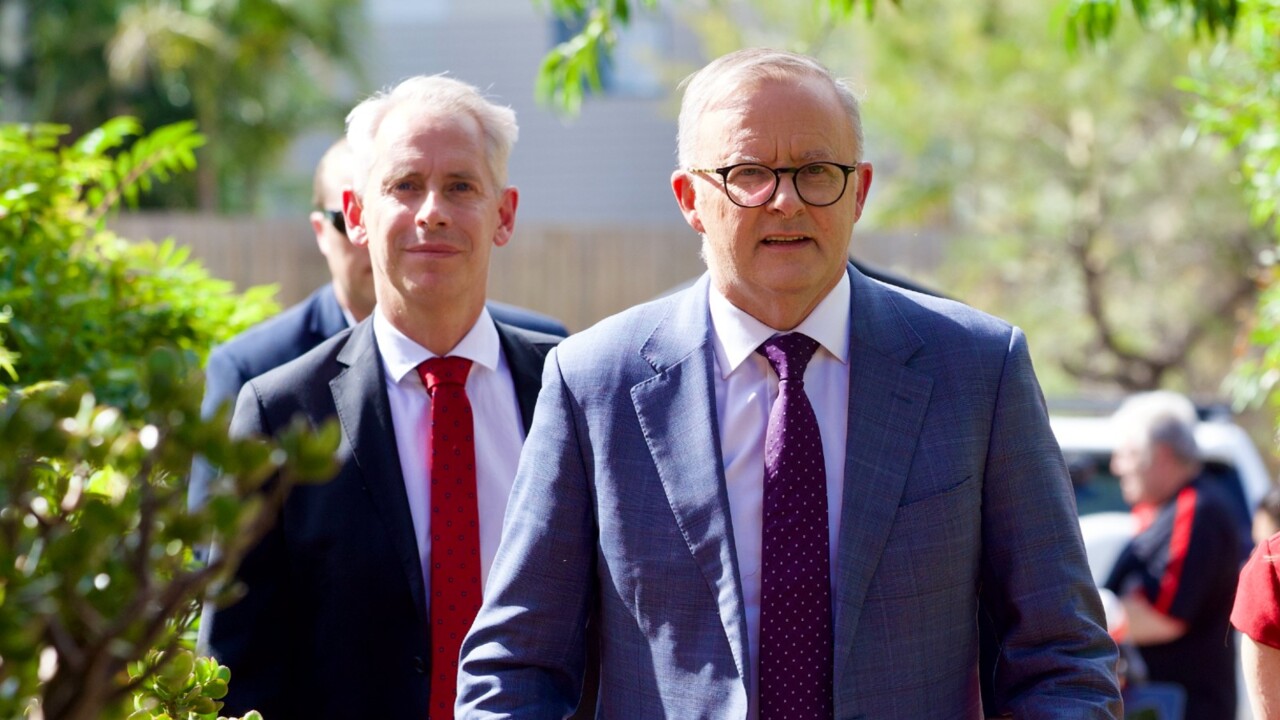
Conservative governments tend to operate with a tension between themselves and the bureaucracy.
They tend to more heavily test the advice received from the public service, which they would argue produces better advice. The bureaucracy is advising people who are naturally suspicious of it.
When Labor is in power, it could be argued that the advice is weaker as the government is more in sync with the public service. The stress testing by government of the advice it is receiving isn’t as robust.
Immigration Minister Andrew Giles has offered more than a glimpse into this predicament.
Albanese, whether as chair or CEO of cabinet, can’t escape the reality that, at the end of the day, people will ultimately blame the prime minister for the failures of minsters.
As the election draws nearer, the need for Albanese to take command of his ministry and the issues confronting the government may become more urgent.
But he will have to consider the consequences of being a more interventionist prime minister.
How are some of the ministers going to deal with Albanese inserting himself more? And will he make the situation better or worse?



